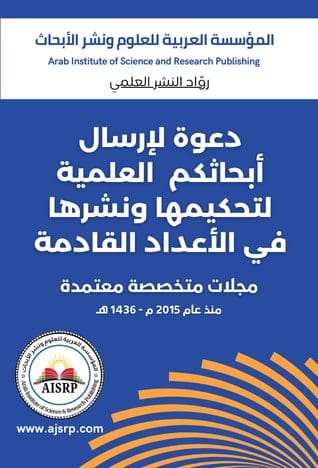قطاع السيارات
The Impact of Organizational Citizenship on Job Performance of Employees in the Private Automotive Sector in Saudi Arabia in the light of 2030’s vision
Mr. Ahmed Farouk Ali*, Dr. Elsayed Eid, Dr. Heba Alhadad
College of Management | Midocean University | Fujairah | United Arab Emirates
Abstract: The study aimed to explore the relationship between the development of Organizational Citizenship Behavior (OCB) and employee performance in the private automotive sector in the Kingdom of Saudi Arabia in light of Vision 2030. The study adopted a descriptive, analytical, and correlational methodology. A sample of 341 participants from five companies operating in the private automotive sector in the Kingdom of Saudi Arabia was selected.
Although the study does not aim to establish a causal relationship between OCB and job performance, it acknowledges that enhancing this concept can contribute to the overall success of the organization.The effects of this study extend beyond the direct impact on job performance. Encouraging OCB can promote teamwork, collaboration, and knowledge sharing among employees,
ultimately leading to improved organizational efficiency and effectiveness. The study’s findings indicated a relationship between OCB, training, and job satisfaction. While the expected direct correlation between OCB and job performance was not confirmed, the analyses highlighted the significant and mediating role of training in enhancing job satisfaction. These insights enrich our understanding of the underlying mechanisms and suggest adopting training initiatives as a strategic means to foster job satisfaction and modulate the effects of OCB within organizational settings.
It is recommended to promote a culture of OCB by enhancing behaviors beyond job tasks, investing in training to boost job satisfaction,
and favoring initiatives to enhance overall employee satisfaction to improve performance.
Keywords: organizational citizenship behavior, job performance, private automotive sector, Saudi Arabia, employee behavior, organizational effectiveness.
أثر المواطنة التنظيمية على الأداء الوظيفي للعاملين في قطاع السيارات الخاص
في المملكة العربية السعودية في ضوء رؤية 2030.
أ/أحمد فاروق علي*، د/ السيد عيد، د/ هبة الحداد
كلية الإدارة | جامعة ميدأوشن | الفجيرة | الإمارات العربية المتحدة
المستخلص: هدفت الدراسة إلى استكشاف العلاقة بين تنمية سلوك المواطنة التنظيمية (OCB) والأداء الوظيفي للموظفين في قطاع السيارات الخاص داخل المملكة العربية السعودية في ضوء رؤية المملكة 2030، اعتمدت الدراسة المنهج الوصفي التحليلي الارتباطي، وقد تم اختيار عينة من 341 مشاركاً لدى عدد 5 شركات تعمل في القطاع الخاص للسيارات داخل المملكة العربية السعودية،
وعلى الرغم من أن الدراسة لا تهدف إلى إقامة علاقة سببية بين المواطنة التنظيمية والأداء الوظيفي إلا أنها تعترف بأن تعزيز هذا المفهوم يمكن أن يساهم في النجاح العام للمنظمة. تمتد آثار هذه الدراسة إلى ما هو أبعد من التأثير المباشر على الأداء الوظيفي. يمكن أن يعزز تشجيع OCB العمل الجماعي، والتعاون، وتبادل المعرفة بين الموظفين، مما يؤدي في نهاية المطاف إلى تحسين كفاءة وفعالية المنظمة، بينت نتائج الدراسة وجود علاقة بين سلوك المواطنة التنظيمية (OCB) والتدريب ورضا الوظيفة.
بينما لم يتم تأكيد الارتباط المباشر المتوقع بين OCB وأداء العمل، تسلط التحليلات الضوئ على الدور الهام والوسيط للتدريب في تعزيز رضا الوظيفة. تثري هذه الرؤى فهمنا للآليات الأساسية وتقترح اعتماد مبادرات التدريب كوسيلة استراتيجية لزرع رضا الوظيفة وتعديل تأثيرات OCB داخل إعدادات المؤسسة.
يُوصى بتعزيز ثقافة OCB من خلال تعزيز السلوكيات خارج مهام الوظيفة، والاستثمار في التدريب لتعزيز رضا الوظيفة، وتفضيل المبادرات لتعزيز رضا الموظفين الشامل لتحسين الأداء.
الكلمات المفتاحية: سلوك المواطنة التنظيمية، الأداء الوظيفي، قطاع السيارات الخاص، المملكة العربية السعودية، سلوك الموظف، الفعالية التنظيمية.




